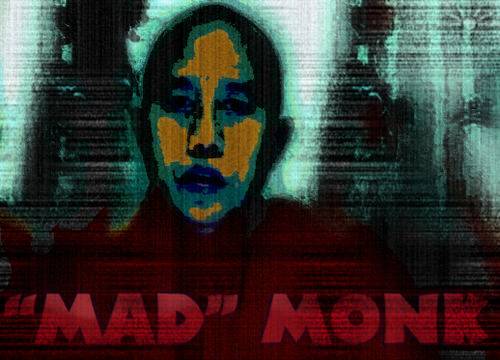
Rumors spread quickly in Myanmar, a southeast Asian nation now fitfully recovering from decades of military dictatorship. Unleashed ethnic tensions have already led to bloody clashes between Burmese nationalists and Muslims.
One of the nation’s most radical nationalists is the Buddhist monk Ashin Wirathu, who spent seven years in jail for inciting violence against Muslims and now advocates exiling them from Myanmar and preventing their marriages to Buddhists. Wirathu—sometimes known as “the Burmese bin Laden”—posts fiery sermons and speeches on social-media sites such as Facebook, where he currently has more than 43,000 followers and is believed to influence many times that number.
Which doesn’t make Facebook happy. So the social network has gotten proactive about helping its users counter what academics call “dangerous speech”—rhetoric that can lay the groundwork for genocide or other acts of mass violence.
The Danger Of Dangerous Speech
Susan Benesch, a human-rights lawyer at Harvard, founded the Dangerous Speech Project to identify inflammatory language that can incite groups to violence—much the way Radio RTLM did in the 1994 Rwandan genocide. Benesch, who spoke last week at Facebook’s Compassion Research Day, takes pains to distinguish “dangerous” speech from that which is merely offensive or distasteful but doesn’t inflame violent passions. As the project’s website notes:
Such efforts must not infringe upon freedom of speech, however, since that is a fundamental right and since free speech itself may help to prevent violence.
In her Facebook presentation, Benesch laid out five criteria for identifying dangerous speech:
- It takes place in a social or historical context ripe for violence, such as longstanding religious tensions or struggles to control valuable resources;
- The audience has grievances or fears a speaker can exploit;
- The speaker is highly influential or charismatic;
- The speech is clearly understandable as a call to violence;
- The speaker employs an influential medium—typically a radio or television station.
Most, if not all, of these factors are at play in Myanmar, particularly if you consider that social media is starting to play an outsized role in shaping public opinion.
Policing Speech Without Policing
Facebook is treading carefully in Myanmar, partly out of necessity. The social network hasn’t yet translated its site into Burmese, and a representative from its Sydney office who also spoke at the compassion-research program said that “building up [Facebook’s] internal Burmese language skills” is one of the organization’s big priorities.
None of that, of course, prevents people in Myanmar from using Facebook to share images, posts and videos in Burmese. As of December 2013, there were more than 600,000 Internet users in Myanmar, most of whom connect via mobile devices. Facebook was unable to share numbers on its Myanmar users with us.
Facebook certainly doesn’t want to play a role in facilitating any future violence, although its first steps toward giving its Burmese users tools to quell rumors and combat misinformation have generally been small ones.
For instance, when a user reports an objectionable post, Facebook pops up the question, “Why don’t you want to see this?” It then gives the usual English-speaking options, ranging from “it’s annoying or not interesting” to “it’s pornographic” or “it’s hateful toward a race, religion, gender, sexual orientation or ability.”
In Myanmar, Facebook has added some additional specific answers, including “it’s a rumor or has false information,” “it promotes violence,” and “it disturbs social harmony.” Because many Burmese connect to Facebook via mobile, Facebook eliminated a few steps to shorten the process of reporting abuse (or the disturbance of social harmony).
That last phrase, by the way, was deliberately chosen for its resonance with Buddhist precepts. “We wouldn’t normally use this language in the U.S.,” Kelly Winters, Facebook’s product manager for “compassion,” said at the event.
Facebook has also given ordinary users new ways to deflect or defuse dangerous speech. For instance, not long ago it introduced a “flower speech” sticker pack that allows people to post a peace-affirming sticker in the comment thread. (Stickers, in case you haven’t been messaging on Facebook recently, are emoji-like cartoons you can drop into chats.)
The flower-speech stickers all include brief messages written in Burmese, such as “speak peace” and “think before you share.” Within a week, Facebook reports that it was the most downloaded sticker pack in Myanmar.
Lead image of Ashin Wirathu by AK Rockefeller










